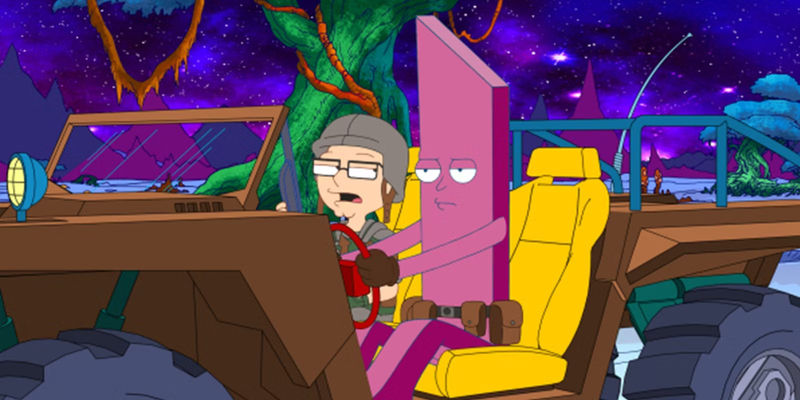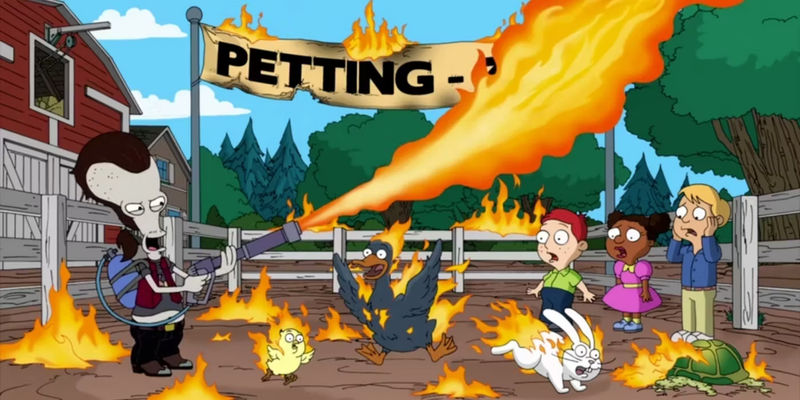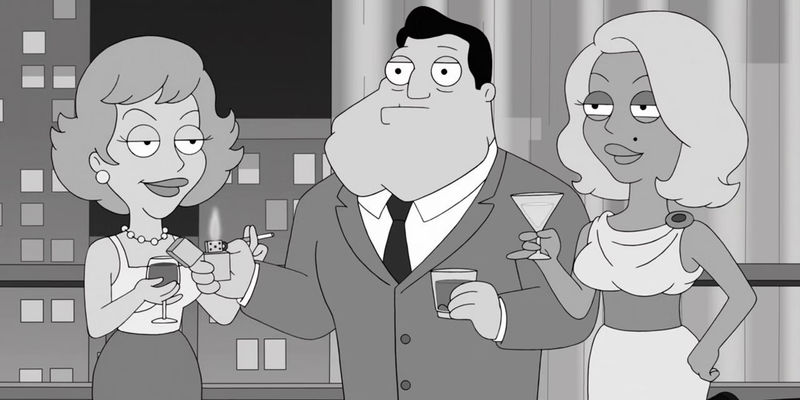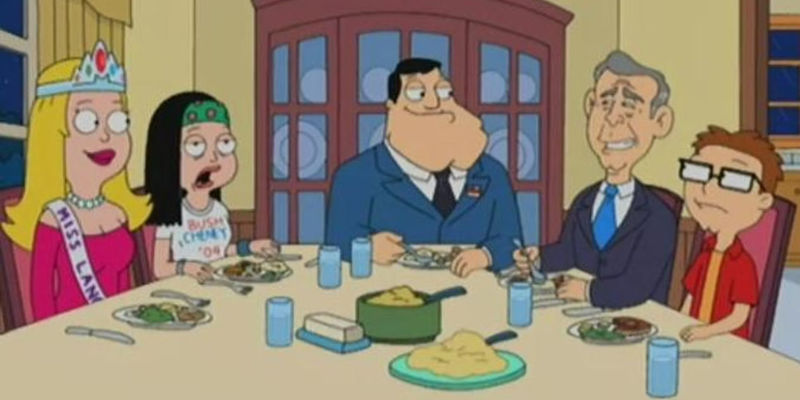
The Evolution of American Dad: From Political Satire to Fantastical Comedy

Explore the transformation of American Dad from a political satire to a fantastical comedy that has captivated audiences for 20 seasons. Discover how the show's shift in focus breathed new life into its characters and storylines, paving the way for its long-running success.
The Birth of American Dad: A Political Satire Turned Weird
When American Dad first graced our screens, it was envisioned as a soft political satire, a mirror to the tumultuous political landscape of its time. Seth MacFarlane, riding high on the success of Family Guy, sought to infuse a new animated sitcom with sharp political commentary. The clashes between conservative Stan and liberal Hayley set the stage for a series filled with political debates and societal commentary.
Stan talks to Hayley in American Dad
However, as the show progressed through its initial seasons, a shift in focus became evident. The writers, realizing the limitations of a purely political narrative, began to explore the quirks and eccentricities of characters like Francine, Steve, Klaus, and the enigmatic Roger. This departure from strict political satire opened doors to a realm of storytelling possibilities beyond the confines of politics.
Steve plays with toys in American Dad
The Departure from Political Satire: Embracing the Weirdness
In a bold move that defined its trajectory, American Dad chose to veer away from its political roots and embrace the weirdness that would become its signature. The initial formula of Stan and Hayley's political clashes gave way to a more fantastical narrative centered around Roger's shape-shifting antics and Stan's comedic ineptitude.
Roger torches a petting zoo in American Dad
By relinquishing the predictable nature of political satire, the show found new life in the absurd and fantastical. Episodes like 'Ricky Spanish' and 'Tearjerker' showcased the show's evolution into a comedy that thrived on outlandish scenarios and imaginative storytelling. This shift not only revitalized the series but also broadened its appeal to a wider audience.
Stan trapped in a TV show in American Dad
The Resilience of American Dad: Adapting for Longevity
Had American Dad remained tethered to its original politically charged premise, its fate might have been vastly different. The ever-evolving political landscape posed a challenge to a show grounded solely in political satire. As administrations changed and societal dynamics shifted, the relevance of the show's initial premise waned.
George W Bush eats dinner with the Smiths in American Dad
By pivoting towards timeless elements like Stan's sociopathic tendencies and Roger's myriad personas, American Dad secured its longevity. The decision to focus on character-driven narratives over political commentary allowed the show to transcend temporal constraints and remain a staple in the realm of animated comedy for two decades and counting.
Stan drinking next to Jesus in American Dad



















